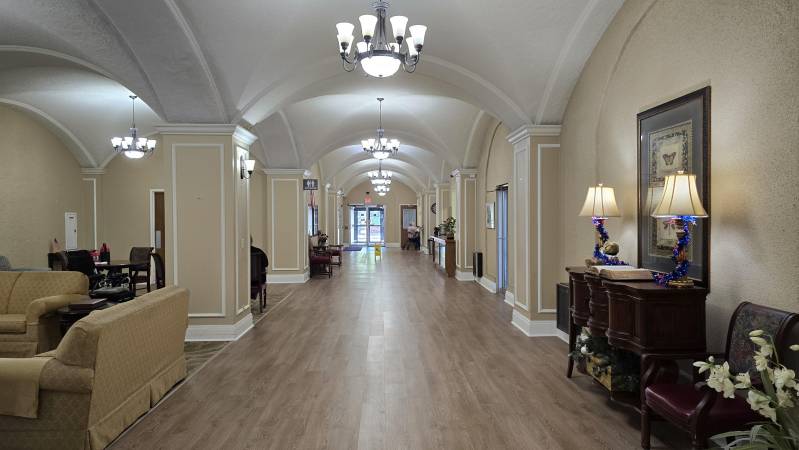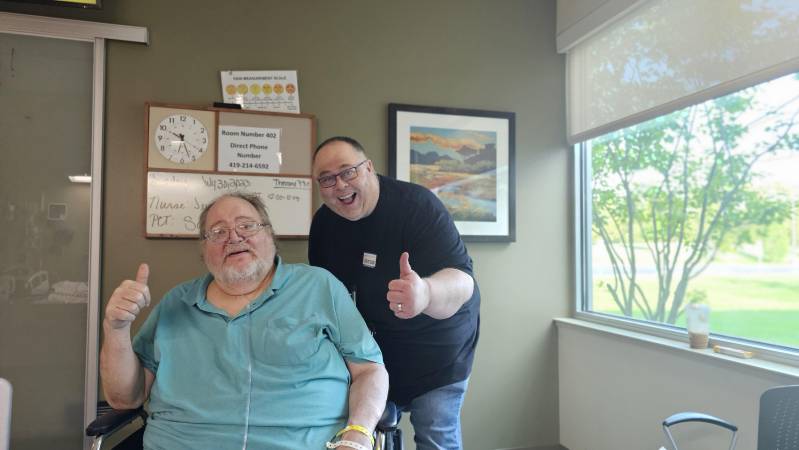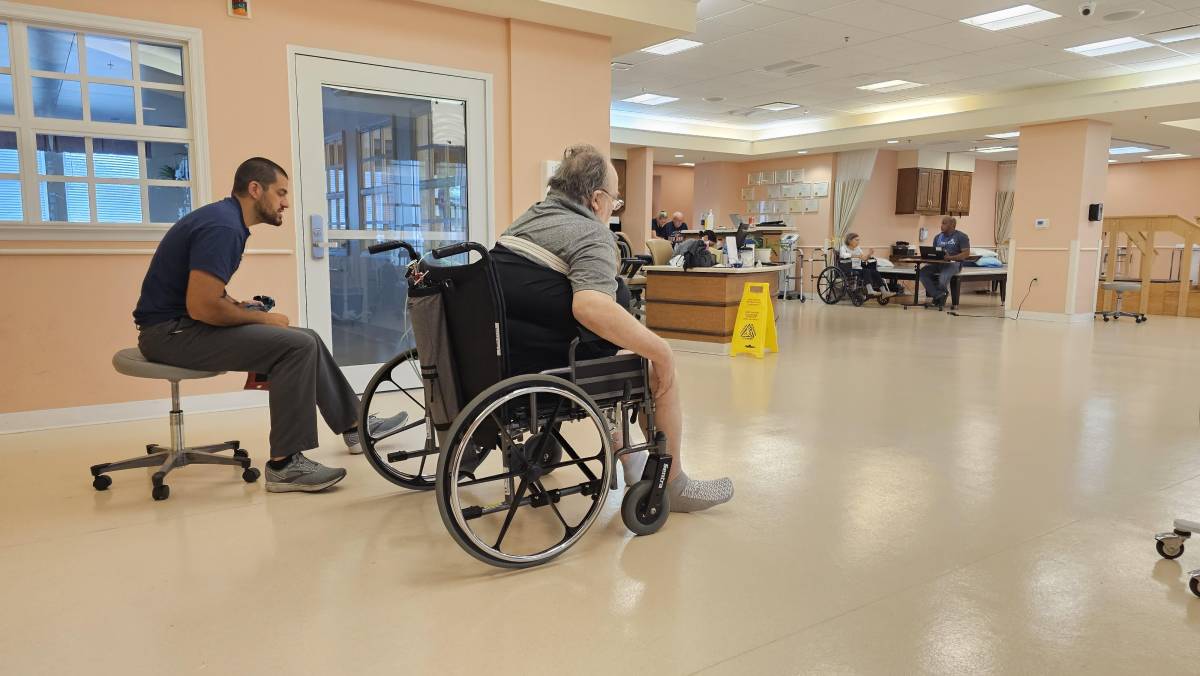As you face the challenging decision of choosing between skilled nursing and assisted living for your parent, you're likely grappling with a mix of emotions and practical concerns. I know my wife and I have over the past two years and frankly the decision isn't as clear cut as you might think it is on paper. It's a pivotal moment that will substantially impact your loved one's quality of life, health, and general well-being. While both options offer valuable care services, they cater to different needs and lifestyles. Understanding the nuances of each can help you make an informed choice that aligns with your parent's unique situation. But before you can determine the best fit, you'll need to reflect on several vital factors that go beyond just medical requirements.
- Skilled nursing offers intensive medical care, while assisted living provides minimal assistance, making the choice dependent on your parent's specific needs.
- Assess your parent's level of independence to determine if they require constant supervision or can manage with occasional support.
- Consider your parent's social preferences, as assisted living focuses on community engagement while skilled nursing prioritizes medical care.
- Compare costs, with assisted living averaging $4,995/month and skilled nursing facilities costing around $9,733/month.
- Consult healthcare professionals to evaluate your parent's health status and recommend the appropriate level of care.
Like most of you, before this most recent episode in my life I had visions of what "nursing homes" were like that were outdated. While some facilities still resemble those rows of beds filled with virtually immobile bodies just waiting for a release so that they could move on to the next plane of existence - modern "skilled nursing" facilities can actually be quite nice.
Unfortunately, no matter how nice the facilities are, our medical community is stretched past the breaking point. On top of this, just like with our critical need for nurses in other parts of healthcare, the shortage of nurses, personal care technicians, and other care providers means that accidents happen. Even beyond accidents, simple episodes of short-term neglect can lead to intense episodes of humiliation, leading to mental health issues. For example, when a patient needs to use the bathroom - they need help immediately, not 20 minutes from then.
Nobody likes to poop themselves or wet the bed!
In addition, patients who are trying to deal with their environment may dismiss accidents because they don't want to cause issues, issues that may lead to their care being impacted by frustrated staff who are upset that they got reprimanded.
However, I can tell you that one such incident that wasn't taken care of quickly or appropriately with my Father in Law led to thousands of dollars in ER bills and likely a permanent setback to his recovery plans.
Luckily Jim has my wife and I to help support him and that's something that I wish every elderly parent had while going through this process.
This is why it is so important to pick the right facility since many people - especially your elderly parent - get confused on how Skilled Nursing facilities (nursing homes) differ from Assisted Living.
Skilled Nursing Facilities
With skilled nursing facilities, you're looking at an extensive care option that goes above and beyond basic assistance. These facilities provide round-the-clock medical supervision and support, catering to individuals with serious health needs who require thorough care.
Licensed nurses and healthcare professionals staff skilled nursing facilities and offer advanced medical services, including rehabilitation therapies and ongoing palliative care. This level of expertise promises that your parent receives the highest medical attention and support possible.
Admission to a skilled nursing facility typically requires a physician's assessment to confirm the necessity for thorough medical care. This guarantees that your loved one receives appropriate care tailored to their specific needs.
It's worth noting that skilled nursing facilities may also serve as temporary care environments for short-term recovery after surgery or injury. Some facilities like this also focus on rehabilitation before patients return home, making them an excellent option for those needing intensive care temporarily. For instance, Jim was at Kingston Healthcare in Perrysburg, Ohio, when he got that serious infection, so even if something is temporary, you still need to be diligent!
While skilled nursing facilities' costs are generally higher than assisted living's, with national median monthly expenses averaging around $9,733, the level of medical care provided justifies this investment in your parents' well-being.

Assisted Living Communities
On the other hand, Assisted living communities offer a vibrant and supportive environment for seniors who value their independence but need some assistance with daily tasks. These communities provide long-term housing solutions that cater to active seniors requiring support with activities of daily living, such as bathing, dressing, and medication management. Unlike skilled nursing care, assisted living focuses on fostering independence while offering vital care services.
You'll find that 95% of assisted living facilities provide on-site activities to promote social interaction and community engagement. Your parent can enjoy a more home-like atmosphere, typically living in a private apartment with access to communal dining and social events. Many communities offer pet-friendly accommodations and transportation services, enhancing residents' quality of life.
While assisted living communities prioritize independence, they often partner with external medical providers to guarantee residents receive necessary care. This approach allows your parent to maintain their preferred lifestyle while having access to medical support when needed. By choosing assisted living, you're giving your parent the opportunity to thrive in a supportive environment that balances independence with vital care services.
Assisted living costs vary considerably based on size of room, location, and amenities provided. It's sorta like buying an apartment in that regard. However, nationally the average cost is about $5,000 per month including basic care, cleaning, food, activities, utilities etc.
Comparing Care Levels
When evaluating care options for your parent, understanding the differences in care levels between skilled nursing and assisted living is crucial. Skilled nursing facilities offer thorough medical supervision and care from licensed healthcare professionals, making them ideal for seniors with severe health issues requiring constant attention. These facilities provide round-the-clock support, rehabilitation services, and specialized care for complex medical conditions.
In contrast, assisted living facilities focus on supporting daily activities while promoting a more independent lifestyle. They're suitable for seniors who need minimal assistance with tasks like bathing, dressing, and medication management. Assisted living emphasizes social engagement and community living, offering a balance between independence and support.
The levels of care in these two options differ markedly. Skilled nursing provides intensive medical care, often requiring a physician's evaluation to confirm the need. Assisted living, however, may not accept residents with severe cognitive impairments. When choosing between these care options, consider your parent's specific health needs, desired level of independence, and social preferences. Remember, the goal is to find the best fit for your parent's well-being and quality of life.

Assessing Your Parent's Needs
Now that we've examined the differences in care levels, let's focus on how to evaluate your parents' needs accurately. Start by assessing their ability to perform Activities of Daily Living (ADLs) like bathing, dressing, and moving around. This will help you gauge the level of assistance they require with everyday tasks.
Next, consult healthcare professionals to evaluate your parents' medical needs. Consider any chronic conditions or ongoing treatments that may necessitate specialized care or more frequent medical attention. It is vital to determine whether they need round-the-clock nursing care or can manage with periodic assistance. No matter which option is best, remember that accidents can and do happen. Whether it's a broken hip or accidently making a mess in the bed, these things can happen anywhere.
Remember to factor in your parents' social preferences. Assisted living facilities often provide more opportunities for social activities and community engagement, which can greatly impact their emotional well-being. If your parents value independence and social interaction, this might be a better fit.
Lastly, any cognitive impairments or memory issues that may require specialized memory care services should be considered. Evaluate the importance of family proximity and support in your decision-making process. By thoroughly evaluating these aspects, you'll be better equipped to choose the most suitable living arrangement for your parent's unique needs and preferences.
Your Parent's Wellbeing Still Depends On Your Attention And Care
Despite the level of care provided in skilled nursing or assisted living facilities, your parent's wellbeing still heavily relies on your ongoing attention and involvement. Some of my friends have jokingly referred to this as the "Circle of Dad". While our parents once took care of us when we scraped our knees, peed the bed, and scolded us for eating too much junk food ... the tables are turned. Now it's our turn to take care of them with the love and dedication that they did for us.
While there are options for in-home care of our parents, the reality is that this is simply not an option for most of us. Just like many of us needed daycare because our parents worked when we were kids, there's no disgrace with helping your parent find a good place that will take care of him or her while you continue your life and caring for your family.
Despite this, your consistent presence and communication is still an essential part of their ability to maintain a high quality of life. Neither skilled nursing homes or assisted living communities are designed to simply be a warehouse of elderly folks. This means that you still need to play an essential role in their emotional health, particularly in assisted living environments where social engagement is emphasized. Regular visits and frequent check-ins can greatly reduce feelings of loneliness and improve your parent's general quality of life.
In both skilled nursing and assisted living settings, your active participation in personalizing care plans is fundamental. By involving your parent in decision-making processes, you help maintain their sense of control and independence. Your intimate knowledge of their needs and preferences allows you to advocate effectively for their wellbeing, ensuring they receive appropriate support for daily living activities and medical care.
As family members, you're distinctly positioned to monitor your parent's physical and emotional health closely. Your attentiveness can help identify subtle changes or concerns that may require adjustments in their care. Whether your parent resides in assisted living or skilled nursing, your ongoing care and attention remain crucial components of their overall wellbeing and happiness.
Making an Informed Decision
Making an informed decision between skilled nursing and assisted living requires a thorough evaluation of your parent's needs, preferences, and your family's resources. Start by evaluating the level of medical care your parent needs. Skilled nursing facilities offer 24/7 medical supervision, while assisted living focuses on support with daily living tasks. Consider your parent's social needs, as assisted living promotes community engagement and activities, whereas nursing homes prioritize medical care over social interaction.
Consult healthcare professionals to determine the appropriate care level based on your parent's health status and daily assistance requirements. Review the amenities and services offered by each option, noting that assisted living may include pet-friendly accommodations and transportation, while skilled nursing provides advanced medical services and therapies.
You've now gained insight into skilled nursing and assisted living options for your parent. Remember, there's no one-size-fits-all solution. Your parent's health needs, desire for independence, and financial situation will guide your decision. Your involvement remains vital in whichever option you choose. Stay engaged, visit often, and advocate for your loved one's care. With careful consideration and ongoing support, you'll guarantee your parent receives the best possible care in their golden years.
